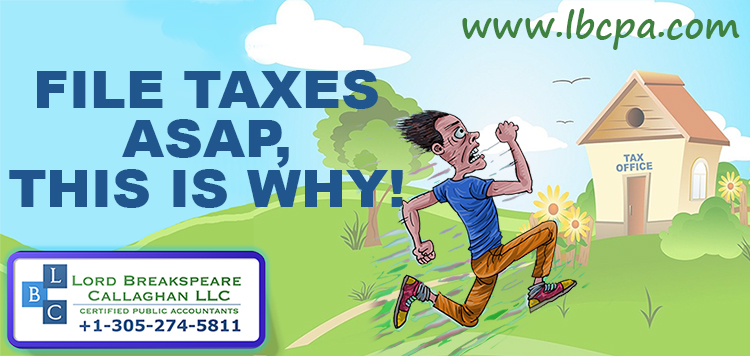LBCPA News 
Click here to go back
Get more worms by filing your tax return early

They say the early bird gets the worm. Early federal income tax filers may get a couple worms, which is a good thing in this metaphor.
Although it may seem like a quaint tradition to wait until the deadline (usually April 15, but actually April 18 in 2022), there’s more than one valid reason for getting your return completed and submitted well before this date. But you have to have the necessary documents to do so.
Prevent identity theft
In one tax identity theft scheme, a thief uses another individual’s personal information to file a fraudulent tax return early in the filing season and claim a bogus refund. The real taxpayer discovers the fraud when he or she files a return and is told by the IRS that the return is being rejected because one with the same Social Security number has already been filed for the tax year.
While the taxpayer should ultimately be able to prove that his or her return is the legitimate one, tax identity theft can be a hassle to straighten out and significantly delay a refund. Filing early may be your best defense: If you file first, it will be the tax return filed by a potential thief that will be rejected, not yours.
Get a potentially earlier refund
Another reason to file early is you may put yourself closer to the front of the line to receive your tax refund (if you’re owed one). The IRS website still indicates that it expects to issue most refunds for the 2021 tax year within the usual 21 days, despite the massive pandemic-related delays that affected millions of 2020 tax returns.
The time is typically shorter if you file electronically and receive a refund by direct deposit into a bank account. Direct deposit also avoids the possibility that a refund check could be lost, stolen, returned to the IRS as undeliverable or caught in mail delays.
Look for your documents
To file your tax return, you need your Form W-2s (if you’re an employee) and Form 1099s (if you’ve worked as an independent contractor or “gig worker”). January 31 is the deadline for employers to issue 2021 Form W-2s to employees and, generally, for businesses to issue Form 1099s to recipients of any 2021 interest, dividend or reportable miscellaneous income payments (including those made to independent contractors).
If you haven’t received a W-2 or 1099 by February 1, first contact the entity that should have issued it. If that doesn’t work, you can contact the IRS for assistance.
Don’t wait!
As of this writing, some taxpayers may still be waiting to receive their 2020 federal income tax refunds. A few people (mostly on social media) have floated the idea of refusing to file their 2021 income tax returns until they receive their refund. Is this a good idea?
No, it’s not. Failing to file your return will only lead to bigger headaches later, possibly even penalties and criminal prosecution. Plus, if you’re owed a 2021 refund, you may receive that money before your 2020 refund. But the only way to get it is to file!
If you have questions or would like an appointment to prepare your return, please contact us. We can help you ensure you file an accurate return that takes advantage of all the breaks available to you.
If you have any questions regarding accounting, domestic taxation, essential business accounting, international taxation, IRS representation, U.S. tax implications of Real Estate transactions or financial statements, please give us a call at 305-274-5811.
Source: Reuters






